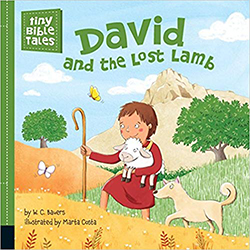In her book Scarred by Struggle, Transformed by Hope, Joan Chittister talks about when she was a young nun serving in the Catholic Church. She was a talented writer and had enrolled in graduate school to study creative writing. Before she had the chance to begin school, the church directed her to serve God in another way. Chittister was disappointed, but obedient.
Later, reflecting on that experience, she wrote, “There is no such thing as a life without struggle. … There is no one who does not have to choose sometime, some way between giving up and growing stronger.” She goes on to say that everyone eventually loses in the game of life and struggle changes people. Some people emerge from it, bitter; while others become stronger, even wiser.
This lesson is about Israel’s response to the survival challenges they encounter in the wilderness. The emphasis of this lesson is on how to trust God in the midst of struggle. Like Chittister, we have a choice. Will we allow struggle to harden us? Or will we emerge from it with a deeper trust in God’s provision.
Exodus 16 begins with the Israelites complaining about life in the wilderness. They have been walking and camping for a month. The picnic lunch they packed back in Egypt is long gone. Water and food are scarce in the wilderness. They watch as their animals grow skinny and listen as their children cry because of their growling stomachs.
They begin to remember Egypt as a place where there is plenty of meat to eat. The euphoria they felt after their escape at the Red Sea gives way to the harsh reality of life in the wilderness. Their immediate need for food supersedes any their long-term hope they had for freedom.
So, the people, weak from hunger, tired from walking, grumble to Moses and Aaron. They gripe and whine. Not just a few of them, but Scripture says “the whole community” (Exodus 16:2). To satisfy their growling stomachs, God performs a miracle.
Each morning, God covers the ground with edible flakes. The Israelites never have seen anything like it and wonder what it is. They cannot decide on a name for this strange substance. Eventually, they simply call it manna, which comes from the Hebrew word man hu or “what is it.”
Now, food is plentiful, but there is a small catch. God tells them to only gather as much manna as they need for that day.
Why would God give them this instruction? The Bible lets us in on a little secret. Through the gift of manna, God is testing them. This is not simply a test to see if they can follow instructions. God wants to know if the people will obey his commands about the manna because then, God will know if they will be willing to keep his covenant law that soon will be revealed to them at Mount Sinai. God is trying to teach them that he is their provider, the one who will take care of them.
Sign up for our weekly edition and get all our headlines in your inbox on Thursdays
Unfortunately, the nearest grocery store is all the way back in Egypt, and some of them are afraid to risk having a bare cupboard. As a result, they keep the manna overnight, even though Moses tells them to throw it out. When they wake up the next day, it is crawling with maggots. Moses gets angry with them for not listening. After the rotten manna stinks up camp, one would think they will pay attention when Moses explains that on the seventh day there will be no manna to gather. He tells them to collect twice as much on the sixth day in preparation for the Sabbath. On the seventh day, they are supposed to rest from their work. However, when they wake up on the Sabbath, some of them still go out to gather manna and are surprised there is none.
God provides manna each day, not just to feed them, but with the hope they will learn to depend on him. God uses the struggles they encounter in the wilderness to increase their faith. Yet, they allow their fear of the unknown to override their desire to obey God. What if the Israelites had simply waited for God to help them? Instead of grumbling, what if they had prayed and then, waited patiently?
I admit that this is easier said than done. However, this is the goal: To learn to patiently trust God to provide for us when we are in need.
Fortunately, the people had many opportunities to learn to trust God. After all, they ate manna for the next 40 years. This strange food became a staple of survival in the wilderness. It is the means by which God provided for them and He did not want them to forget it.
God asked Moses to collect an omer of manna, one person’s daily portion, put it in a jar and keep it for future generations. Maybe we should learn from this. When God provides for us during difficult times, we should collect some of that provision, either by writing down how God provided for us or by keeping the check, or acceptance letter, whatever it may be, to remind us of God’s faithfulness.














We seek to connect God’s story and God’s people around the world. To learn more about God’s story, click here.
Send comments and feedback to Eric Black, our editor. For comments to be published, please specify “letter to the editor.” Maximum length for publication is 300 words.